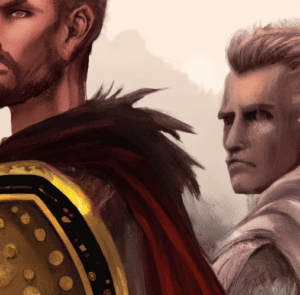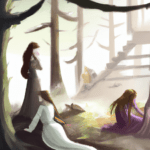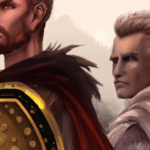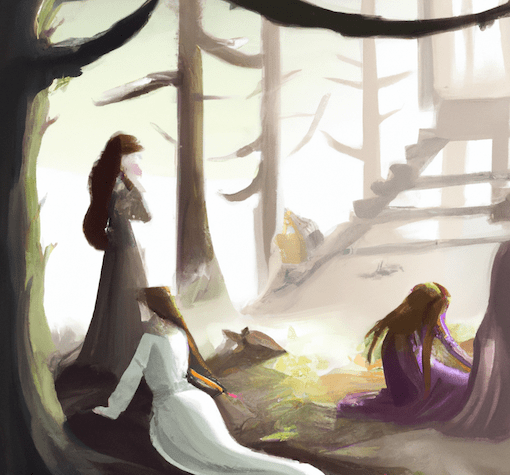Creating memorable and relatable characters is essential for any successful novel, especially in the science fiction genre. Science fiction books often explores complex ideas and futuristic worlds, but it’s the characters that bring those worlds to life and engage readers. In this blog post, we’ll explore tips and techniques for crafting compelling characters in science fiction novels.
Guide for Crafting Characters in Science Fiction Books
Start with a strong concept

A strong concept is the foundation of any compelling character. Think about what makes your character unique, what motivates them, and what challenges they will face. This can be based on their background, personality, or even physical traits. For example, a character with a robotic arm may have a unique perspective on humanity and technology, or a character from a matriarchal society may challenge gender roles in a futuristic world.
Give your characters depth and complexity
Compelling characters are not one-dimensional, they are complex and multi-faceted. Give your characters strengths and weaknesses, desires and fears, and conflicting motivations. A character who is brave and selfless in one situation may be selfish and cowardly in another. This depth makes characters relatable and keeps readers engaged as they try to understand the character’s motivations.
Develop distinct and consistent personalities
Each character in your novel should have a distinct and consistent personality. This includes their beliefs, values, and motivations, as well as their mannerisms, speech patterns, and thought processes. Make sure your characters remain true to their personalities, even in the face of adversity. This consistency will help readers understand and connect with your characters on a deeper level.
Show, don’t tell
Instead of simply telling readers about your characters, show them through their actions, thoughts, and interactions with others. This allows readers to form their own opinions about your characters and makes them feel more invested in their journey.
Give your characters agency
Compelling characters are active, not passive. They drive the story forward, make decisions, and take action. Give your characters agency by allowing them to make choices and face consequences. This keeps readers engaged and invested in their journey, and also helps to build tension and suspense.
Explore the relationships between characters
Relationships between characters can add depth and complexity to your story. Explore the dynamics between your characters, whether it’s a romantic relationship, a friendship, or a rivalry. These relationships can reveal new sides of your characters and drive the plot forward.
Use conflict to drive character development
Conflict is an essential ingredient in any successful novel, and it’s particularly important in science fiction. Conflicts can range from external struggles against a hostile environment or oppressive government, to internal struggles with identity and morality. These conflicts not only drive the plot forward, but they also help to develop your characters and reveal new aspects of their personalities.
Crafting compelling characters in a science fiction novel requires careful planning and attention to detail. Start with a strong concept, give your characters depth and complexity, develop distinct and consistent personalities, show instead of telling, give them agency, explore relationships, and use conflict to drive character development. By following these tips, you’ll be able to create characters that will captivate readers and bring your science fiction world to life.
Keywords: science fiction, characters, compelling, depth, complexity, personality, show, tell, agency, relationships, conflict, development, science fiction books, characters in science fiction books, crafting characters for science fiction books, steps to create characters for scienc fiction books, science fiction books tips, steps to creating science fiction books
Check out our Novel Writing Workbooks
Check out Little Tree Food Forest for articles on food forests and homesteading.
Check out FoodieScapes for articles on growing, fermenting and preserving food
Check out StoryScapes.World for articles on writing.
Subscribe to our newsletter to get information delivered to your inbox on how to write a book, outlining your novel, keeping journals, marketing your novel, self-publishing, writing poetry and more.










